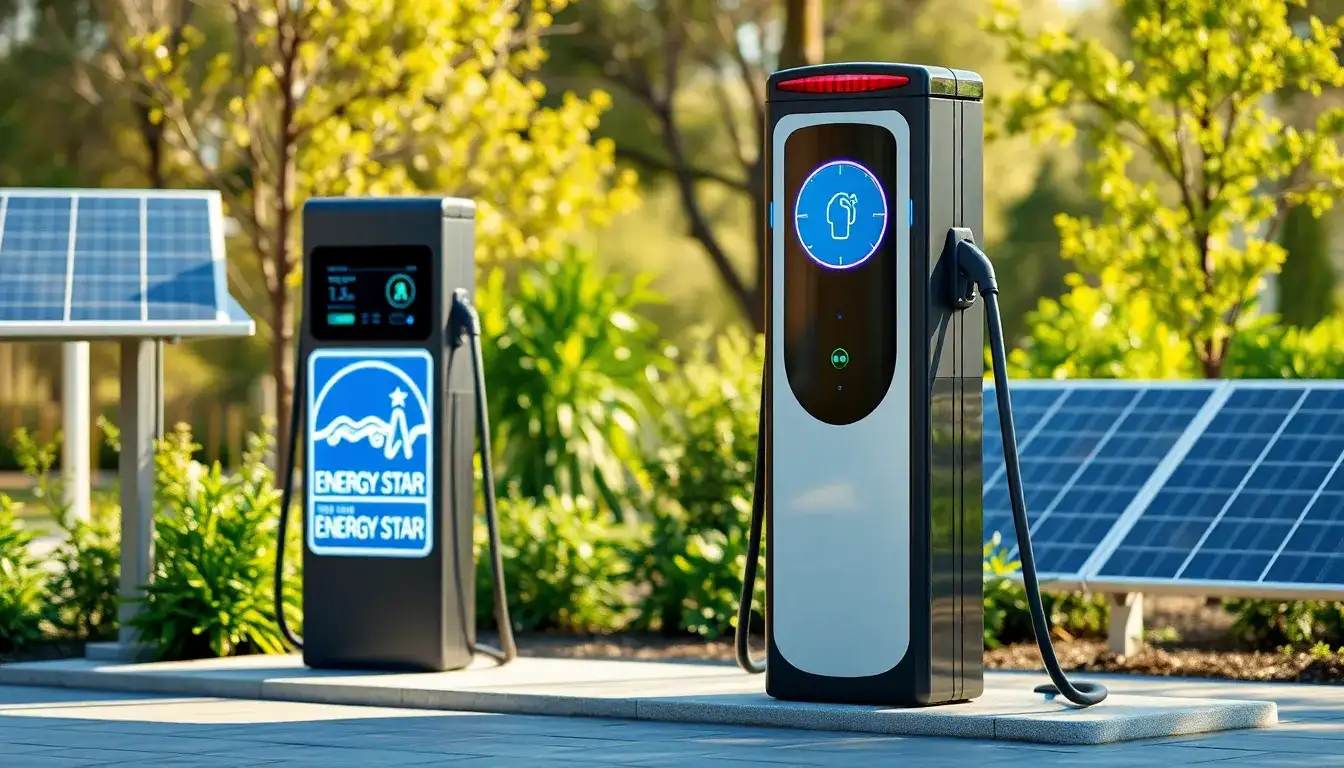
Major Update: Draft Version of ENERGY STAR V2.0 for EVSE Released by U.S. EPA on January 15, 2025!
As electric vehicles continue to gain popularity and the charging power of electric vehicle supply equipment (EVSE) increases, the U.S. Environmental Protection Agency (EPA) released the draft version of ENERGY STAR V2.0 for EVSE on January 15, 2025. This move aims to address the changing market conditions and enhance energy efficiency. The EPA is currently seeking public feedback on this draft, and a webinar was held on January 30, 2025, to discuss the technical regulations and testing methods in detail, laying the groundwork for the final version of V2.0.
Key Changes in the Technical Regulations and Testing Methods for ENERGY STAR V2.0 Draft
- AC Charging Level 1: The maximum output current has been increased from 16A to 50A.
- DC Charging Coverage: The range for DC charging stations has been expanded from a maximum output power of 350kW to 850kW. This significant update broadens the applicability of ENERGY STAR certification for charging stations, benefiting manufacturers.
- Interoperability Enhancements: A definition for plug-and-charge has been added to align with the National Electric Vehicle Infrastructure (NEVI) – 23 CFR 680. This includes:
- Connection Standards: Revised for simplified identification of connection functionalities, providing greater transparency for utilities and consumers.
- ISO 15118: Plug-and-charge is a crucial user-friendly feature. The EPA proposes that models must include all functionalities required to comply with ISO 15118 as outlined in 23 CFR 680.108.
- OCPP 2.0: The Open Charge Point Protocol (OCPP) 2.0 allows seamless communication between charging stations and central management systems, enhancing scalability for operators managing multi-output EVSE. The EPA recommends compliance with OCPP 2.0.1 or higher for ENERGY STAR 2.0 certification.
- V2G (Vehicle-to-Grid): To ensure consumer safety and support state/utilities programs, the EPA suggests adding reporting requirements to demonstrate compliance with UL 9741 and/or UL 1741 SA/SB standards.
- Power Requirement Calculations for AC Charging Stations: The formula for calculating power requirements in No Vehicle, Partial On, and Idle modes has been modified. The weighted values for network wake-up (PWAKE) and auxiliary functions (PAUX) have been removed, while the weighted value for ISO 15118 (PISO 15118) has been included.
- Power Requirement Calculations for DC Charging Stations: The formula has been adjusted, reducing the natural logarithm multiplier for Max Power from 35.6 to 31 and removing the weighted value for display (PDISPLAY).
- Testing Conditions for DC Charging Stations: The formula and testing methods for power requirements during operational modes have been revised. The high and low-temperature requirements have been removed; testing now only needs to be conducted at room temperature (20 degrees Celsius) with average efficiency calculated for that condition.
- Average Efficiency Limits for DC Charging Stations: The average efficiency limit has been increased from 0.93 to 0.945. Additionally, for DC charging stations with an output power of over 200kW, a separate efficiency requirement at a load of 50kW has been introduced, with a limit set at 0.925.
For the full text of the ENERGY STAR V2.0 draft regulations, visit this link.
Feedback on the Draft Standards
If you have any questions or feedback regarding the draft version of ENERGY STAR V2.0 for EVSE released by the U.S. EPA, please feel free to contact us. Our technical experts are available to answer your queries or gather feedback to submit to the EPA’s ENERGY STAR standards team. You may also reach out directly via email at kwon.james@epa.gov or evse@energystar.gov.
BACL Charging Station Testing Services
BACL’s laboratory focuses on researching global standards for new energy charging stations, keeping abreast of industry trends and standard updates while maintaining strong collaborations with renowned institutions. Equipped with leading testing equipment in accordance with the latest standards, we ensure that we meet various customer needs for new energy charging station testing, significantly shortening the international certification process (CB, CE, UL, etc.) and facilitating easier access to international markets.
BACL’s Testing Capabilities and Accreditation
BACL offers comprehensive testing services for all types of charging stations, including safety compliance, EMC, reliability, chemical testing, and cybersecurity assessments. Our laboratory is dedicated to providing one-stop testing and certification services for charging station manufacturers, distributors, and importers, ensuring efficient access to international certifications and smooth entry into global markets.







